AI SEO Content Marketing: Your Secret Weapon to Dominating Search Results
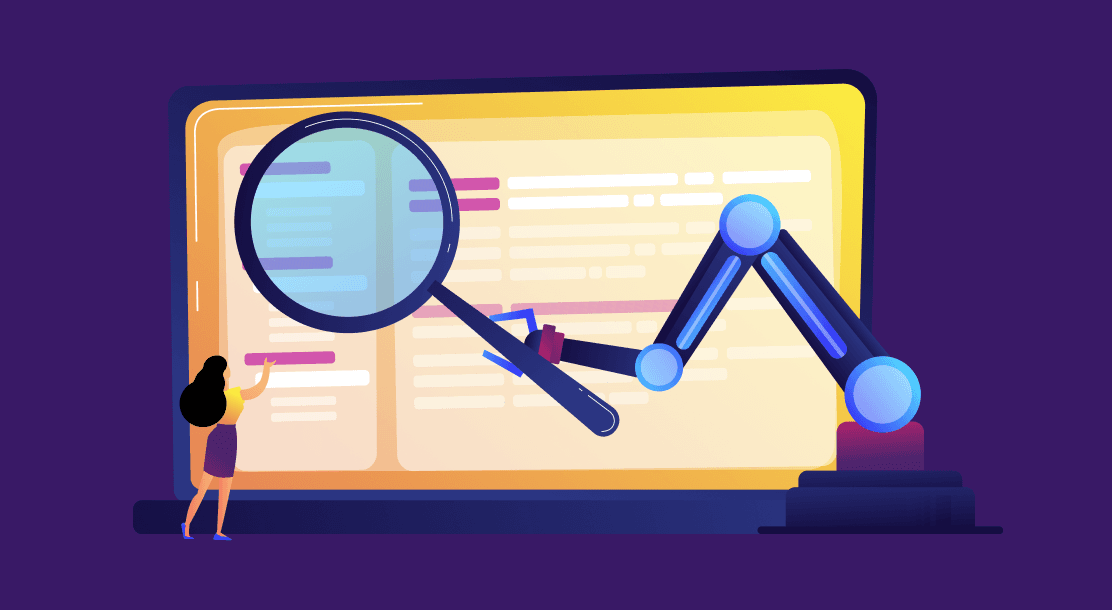
Hey, digital marketers! Are you ready to take your SEO content marketing to new heights? Imagine a world where you can create high-quality content at lightning speed, effortlessly optimize it for search engines, and watch your brand skyrocket to the top of search results.
Well, that is now possible with Artificial Intelligence (AI). In this article, we’ll dive deep into how you can scale your SEO content marketing efforts using the remarkable capabilities of artificial intelligence. Get ready to revolutionize your game with AI SEO content optimization!
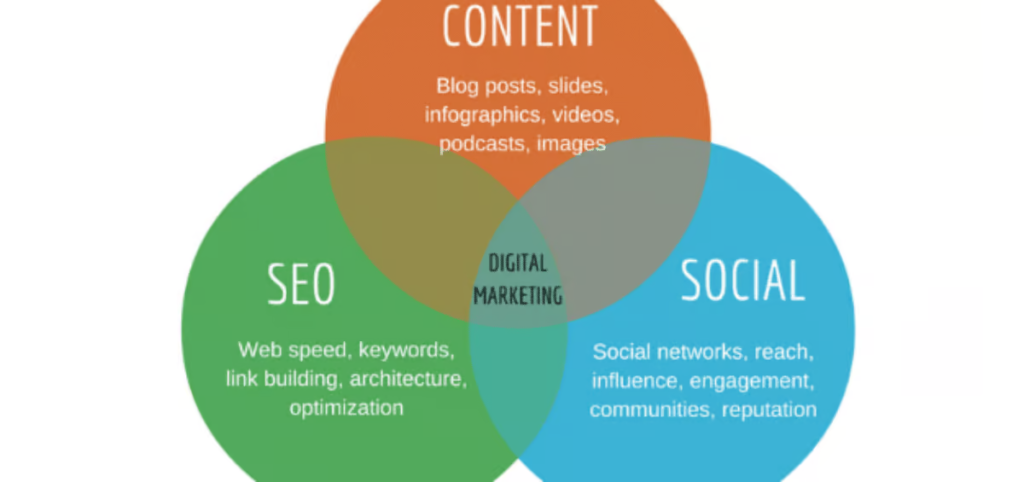
The Importance of SEO in Content Marketing
Let’s face it, there’s a lot of noise in the digital world. There are millions of websites and billions of pages. With so much competition, it’s easy for your content to get lost in the crowd.
That’s where SEO comes in. It helps your content stand out from the crowd. It ensures that your content appears at the top of search engine results pages (SERPs), where your target audience is most likely to find it.
SEO also helps your content stay relevant and up-to-date. By optimizing your content with strategic keywords, meta tags, and backlinks, you can ensure that it stays fresh and engaging for your target audience. You can also use SEO to track your content’s performance and make data-driven decisions about how to improve it.
In short, SEO is the secret sauce that makes your content marketing efforts go from good to great. It helps you attract the right audience, stay relevant, and deliver measurable results.
SEO Content Marketing Practices
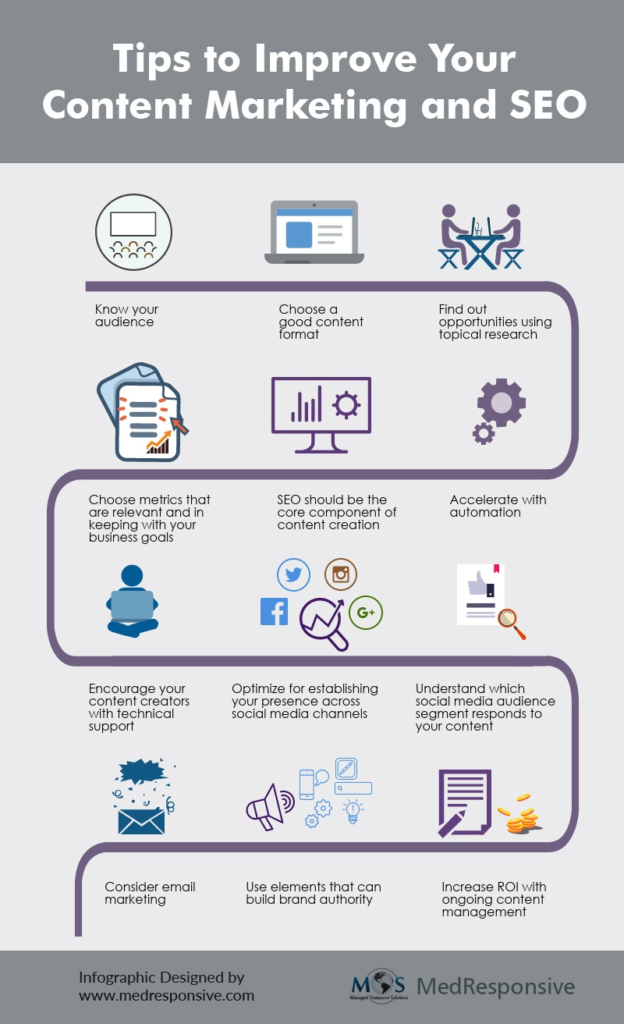
- Research, research, research! You can’t optimize your content if you don’t know what people are searching for. Find keywords, analyze search trends, and find gaps in the market.
- Optimize your content for humans first, and search engines second. Sure, you want to rank high on SERPs, but ultimately, it’s your human audience that will be reading your content. Make it engaging, informative, and valuable.
- Don’t forget about meta tags! They may be small, but they pack a punch. Use AI-powered tools to generate optimized meta tags that will help your content stand out on SERPs.
- Keep an eye on your competitors. What are they doing that’s working? What can you do better? Analyze their content and performance metrics using AI-powered tools to gain a competitive edge.
- Track your content’s performance in real time. Monitor your engagement metrics, identify areas for improvement, and make data-driven decisions.
- Personalize your content to enhance the user experience. Understand user preferences and deliver personalized content recommendations.
The Need For AI SEO Content Marketing
AI is like having a personal assistant who’s also a genius. It’s like having a Sherlock Holmes for your content marketing team, minus the deerstalker hat and pipe.
In all seriousness, AI SEO content marketing can be a game changer for you. It’s like a superpower that gives you x-ray vision into your audience’s preferences and behaviors. With AI, you can analyze user data, identify trends, and create content that resonates with your audience.
Did you know that AI content optimization can generate up to 60% more organic traffic for your website? That’s right! AI helps you optimize your content like a pro. It can analyze your competitors’ content, identify gaps in your own content, and recommend improvements that can boost your search rankings.
And let’s not forget about the time-saving benefits of AI. With SEO AI content marketing tools, you can automate mundane tasks like keyword research, content optimization, and performance tracking. This frees up your time to focus on the creative aspects of content marketing, like ideation, storytelling, and engaging with your audience (here’s a secret – there are AI tools for these tasks as well!).
Scaling SEO Content Marketing With AI
So, how can you harness the power of SEO AI content? Let’s break it down into actionable steps:
1. Keyword research and optimization
You know what they say, “Keyword research is the foundation of any good SEO strategy.” And with AI SEO content optimization tools, you can take your keyword research game to the next level.
Tools like Ahrefs and Semrush use machine learning algorithms to analyze search trends, competition, and user behavior to provide valuable keyword insights. These tools can help you identify high-performing keywords with lower competition, giving you a strategic advantage.
But that’s not all. AI algorithms can also analyze your existing content and recommend optimizations to enhance keyword usage. For example, Clearscope uses AI to analyze your content and identify the most important and relevant keywords to use. This ensures your content is fully optimized to rank higher on SERPs and attract more traffic.
For example, let’s say you’re a coffee shop owner who wants to attract more customers to your website. By using AI-powered tools like Semrush, you can analyze which coffee-related keywords are being searched for the most, such as “best coffee shops near me,” “coffee brewing techniques,” or “best coffee beans for espresso.” This helps you understand your audience’s interests and create content that caters to their needs.
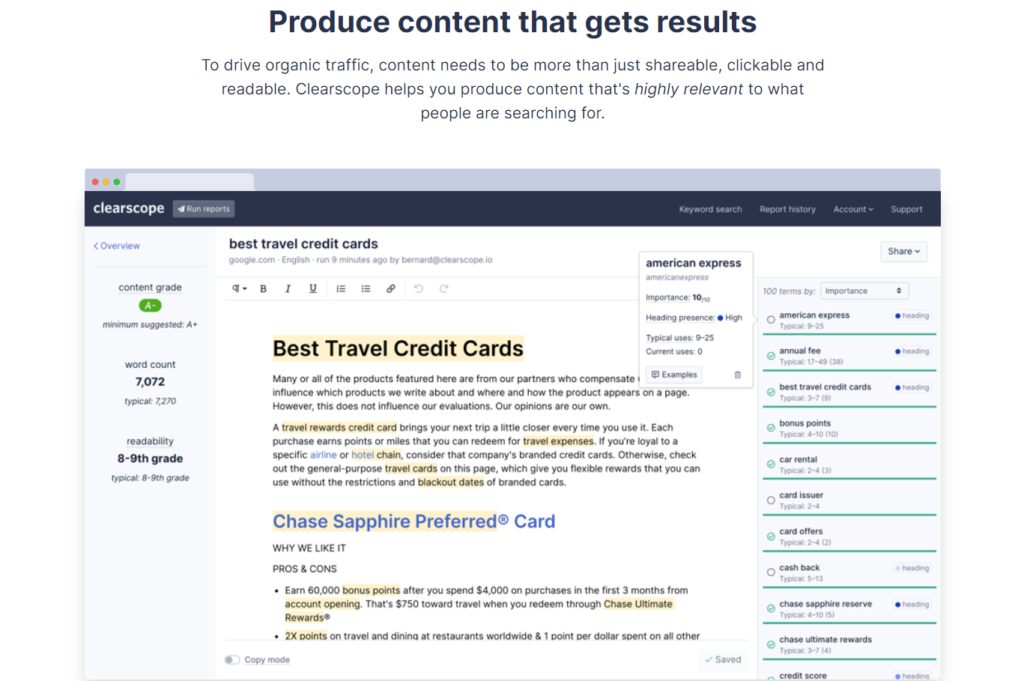
2. Content creation and generation
AI is like having a team of skilled writers at your fingertips. AI SEO content tools like Peppertype.ai, Copy.ai, and Writesonic can help you generate quality content across various formats.
Imagine needing a catchy headline for your latest blog post. Instead of racking your brain for hours, you can turn to an AI-powered tool like Peppertype.ai. It can analyze your article’s content, understand the context and tone, and generate attention-grabbing headlines that will make your readers click faster than you can say “SEO content.”
And let’s not forget about blog posts. With AI content optimization tools, you can streamline your content creation process. Instead of spending hours researching and writing, you can leverage AI-powered algorithms to generate informative, engaging, and SEO-based blog posts in a fraction of the time. Just think about the possibilities: more content, more topics covered, and more opportunities to attract and engage your audience.
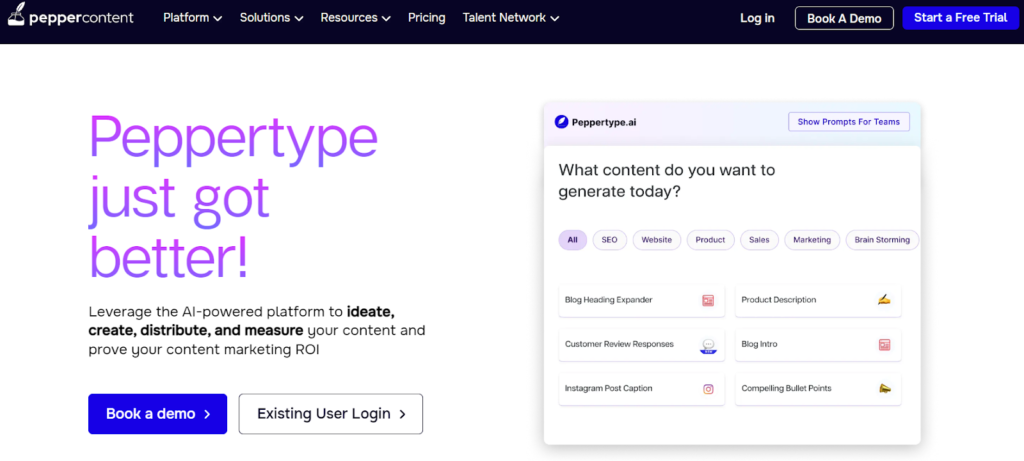
3. Content optimization and performance tracking
SEO AI content tools can also help you continuously monitor and optimize your content for better performance. For example, the tool MarketMuse uses AI to analyze your content and identify content gaps. It then provides recommendations for new content to create or existing content to update to enhance your SEO strategy.
Additionally, tools like Google Analytics and Hotjar use AI to analyze user engagement metrics and provide insights into user behavior. This enables you to track your content’s performance in real-time, making data-driven adjustments to maximize its impact.
Moreover, AI content optimization tools can analyze user engagement metrics such as bounce rate, time on page, and click-through rate to determine how your content is performing. For instance, the tool ContentKing can track changes in your content’s SEO health and alert you when something needs fixing. It can also provide insights into how users interact with your content and suggest improvements to enhance their experience.
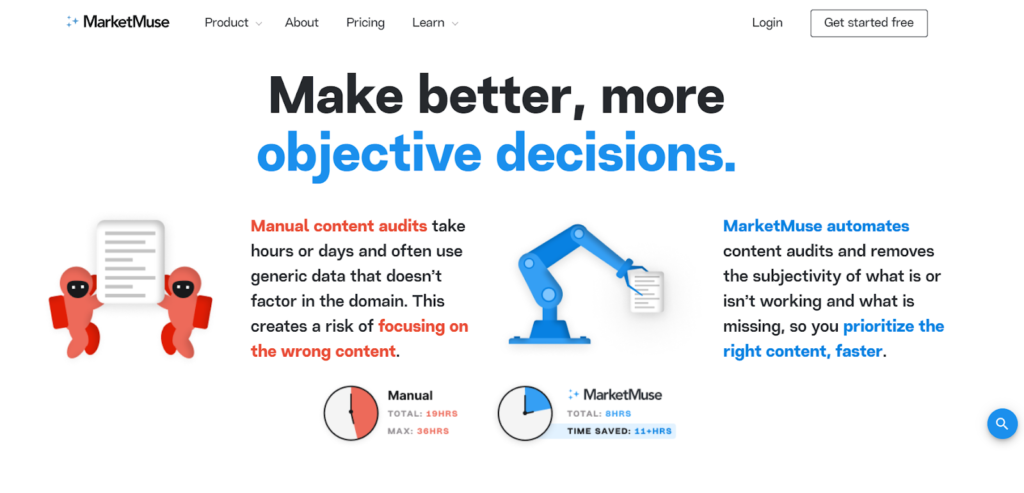
4. Personalization and user experience
Last but not least, SEO AI content tools enable you to deliver personalized content experiences tailored to individual user preferences. By leveraging AI algorithms, you can analyze user data, understand their needs, and provide relevant content recommendations.
For example, the tool Optimizely uses AI to personalize website experiences based on user behavior, leading to higher engagement and conversions. This level of personalization enhances user experience, increases engagement, and ultimately boosts your SEO rankings. Plus, it helps to build brand loyalty and trust with your audience.
Overall, AI can help you deliver personalized content experiences that increase engagement, build brand loyalty, and boost your SEO rankings. By leveraging AI algorithms, you can optimize your content for a better user experience, resulting in increased traffic, conversions, and revenue.
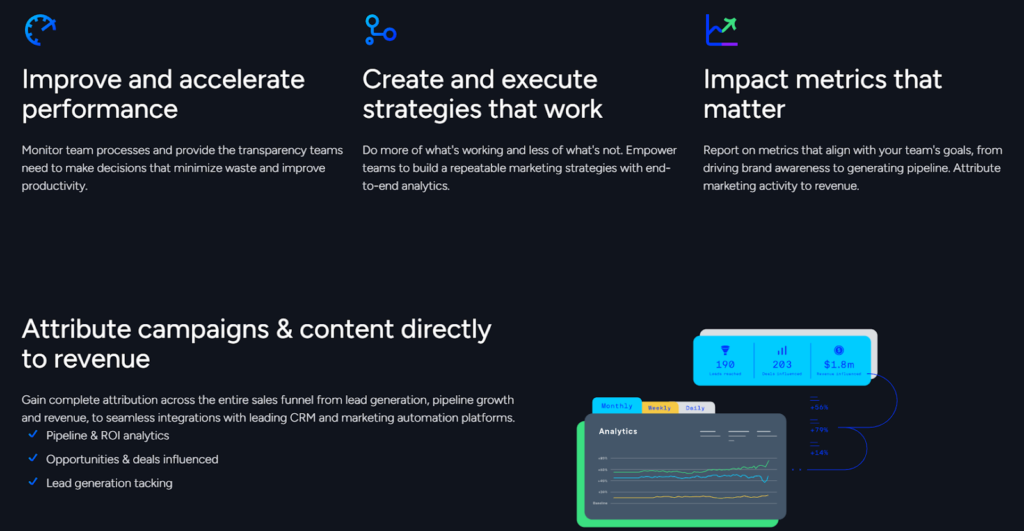
Wrapping Up
By leveraging AI-powered tools, you can streamline your processes, optimize your content, and deliver personalized experiences to your audience. So, buckle up and let AI SEO content marketing tools be your co-pilot in conquering the digital landscape.
Don’t forget to check out Peppertype.ai for your AI content optimization needs. We can be the Robin to your Batman a.k.a. your content marketing team!
Remember, the world of AI is ever-evolving, so keep exploring, experimenting, and adapting to stay ahead in the race. Happy scaling!
FAQs
SEO content marketing involves creating high-quality content that is optimized for search engines. It helps your content stand out from the crowd and ensures that your target audience finds it at the top of search engine results pages (SERPs).
AI can analyze user data, identify trends, and create content that resonates with your audience. It can optimize your content for search engines, identify gaps in your own content, and recommend improvements that can boost your search rankings.
Yes, according to research, AI content optimization can generate up to 60% more organic traffic for your website.
AI can help with tasks like ideation, storytelling, and engaging with your audience. It can automate mundane tasks like keyword research, content optimization, and performance tracking.
Latest Blogs
Explore how Google’s 2025 AI search updates triggered ranking chaos. Learn actionable strategies to adapt your SEO for AI Overviews, zero-click searches, and SERP volatility. Stay ahead now.
Learn how to rank on AI search engines like ChatGPT, Perplexity, and Gemini by optimizing your content for authority, structure, and relevance. Stay ahead in AI-driven search with this strategic guide.
Explore the best healthcare SEO services for your medical practice. Improve online visibility and effectively reach more patients in need of your services.
Get your hands on the latest news!
Similar Posts
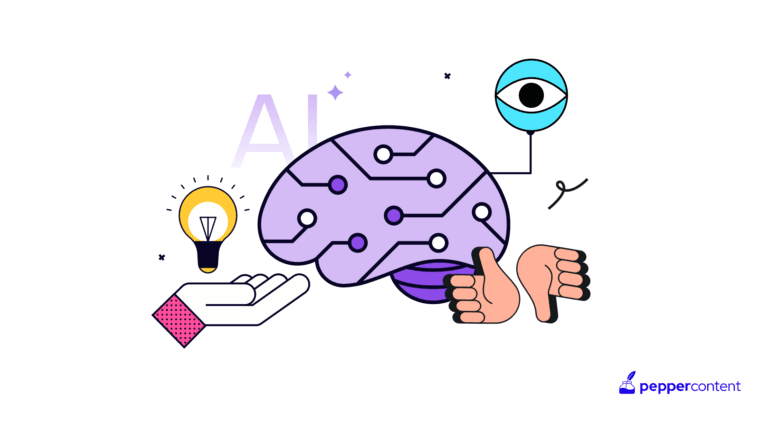
Generative AI
8 mins read
Top 5 Rules to Rule AI Marketing Tools Like a Pro
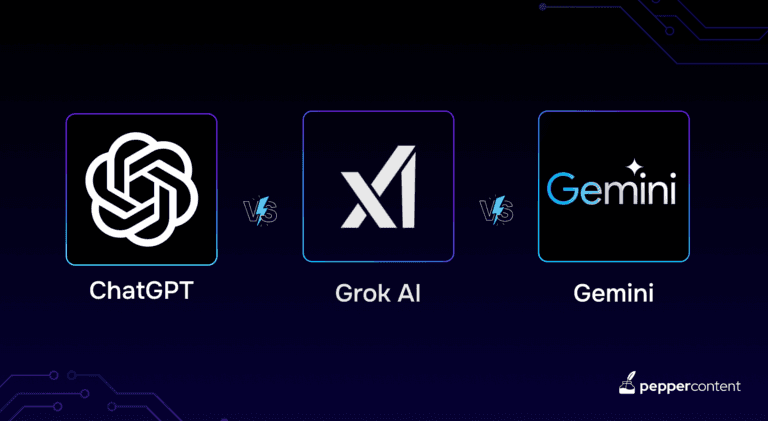
Generative AI
8 mins read
ChatGPT vs Grok AI vs Gemini AI: Everything You Need to Know About These Powerful AI Assistants
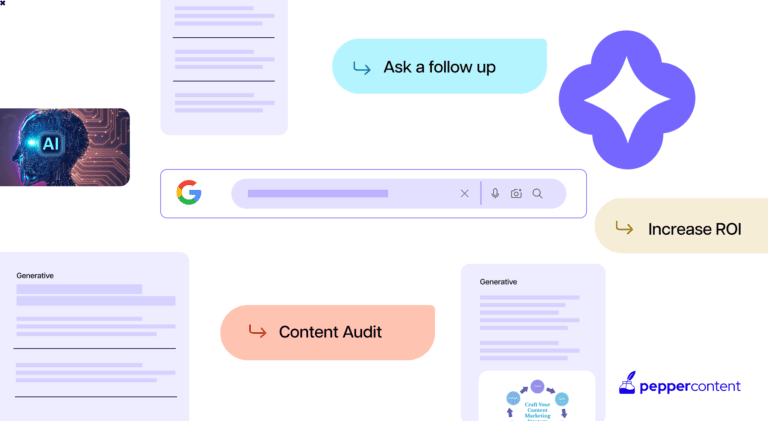
Generative AI
8 mins read